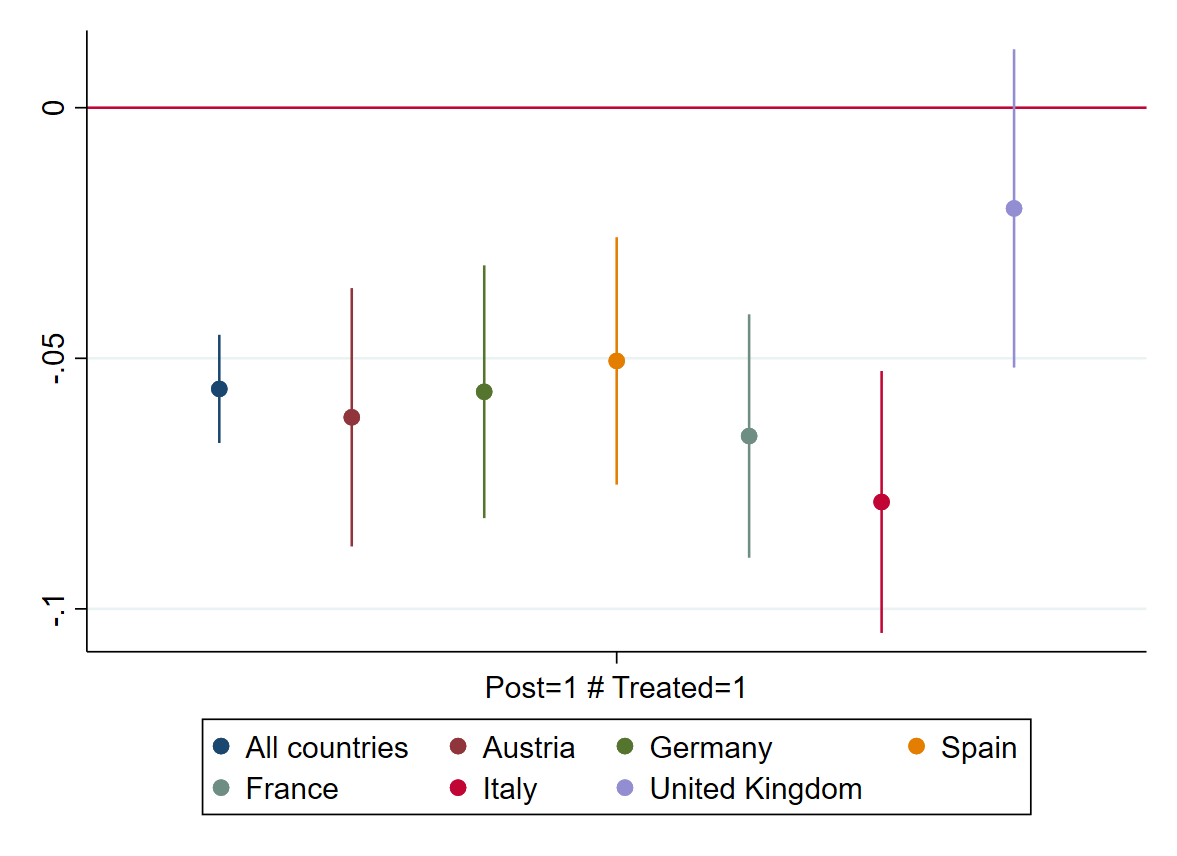The impact of trade wars on uninvolved countries: Evidence from the smartphone market
The impact of trade wars on uninvolved countries: Evidence from the smartphone market
Working Paper (New version coming soon)
In this paper, I study how non-tariff actions such as firm-specific blacklisting can have spillovers across borders and affect market outcomes. To do so, I analyze the impact of the recent trade tensions between the U.S. and China on the prices of smartphones commercialized in uninvolved countries. The empirical analysis relies on an extensive dataset of daily prices of smartphones sold in six European countries. It uses the natural experiment of the trade war and a difference-in-differences approach in which the treatment effect is determined using standard and synthetic control groups. The results suggest that Huawei’s blacklisting in the U.S. had a negative and significant impact on the prices of the smartphones sold by the Chinese firm in all of the European countries studied. The likely mechanism is the anticipation of a decline in the demand due to privacy concerns, but also and mainly the threat of losing access to Google’s Android operating system. I also find that Huawei increased its market shares in the focal countries on the short run, suggesting that the price decline compensated the “shadow” cast on the brand’s products’ quality. However, in the longer term, this effect disappears as Huawei’s market shares sharply declined, without affecting Android’s position in Europe, what suggests that some substitution occurred within the range of products running on Android. These findings also contribute to the understanding of substitution and switching costs occurring on platform markets.
